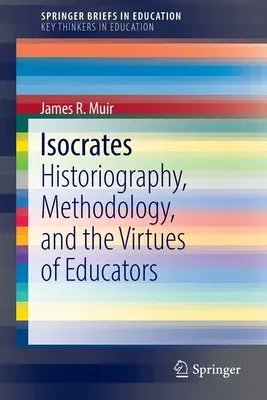James R Muir
(Author)Isocrates: Historiography, Methodology, and the Virtues of Educators (2022)Paperback - 2022, 3 June 2022

Qty
1
Turbo
Ships in 2 - 3 days
In Stock
Free Delivery
Cash on Delivery
15 Days
Free Returns
Secure Checkout

Part of Series
Springerbriefs in Education
Part of Series
Springerbriefs on Key Thinkers in Education
Print Length
134 pages
Language
English
Publisher
Springer
Date Published
3 Jun 2022
ISBN-10
3031009703
ISBN-13
9783031009709
Description
Product Details
Author:
Book Edition:
2022
Book Format:
Paperback
Country of Origin:
NL
Date Published:
3 June 2022
Dimensions:
23.39 x
15.6 x
0.79 cm
Genre:
Ancient (To 499 A.D.)
ISBN-10:
3031009703
ISBN-13:
9783031009709
Language:
English
Location:
Cham
Pages:
134
Publisher:
Weight:
213.19 gm